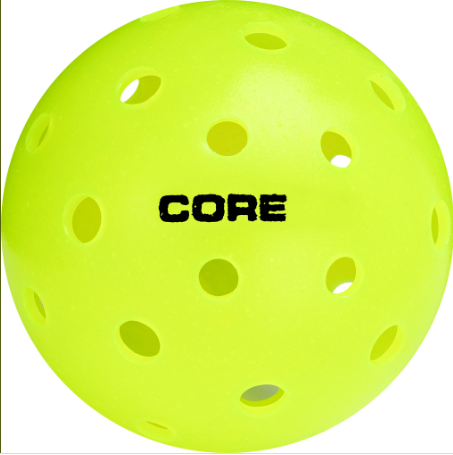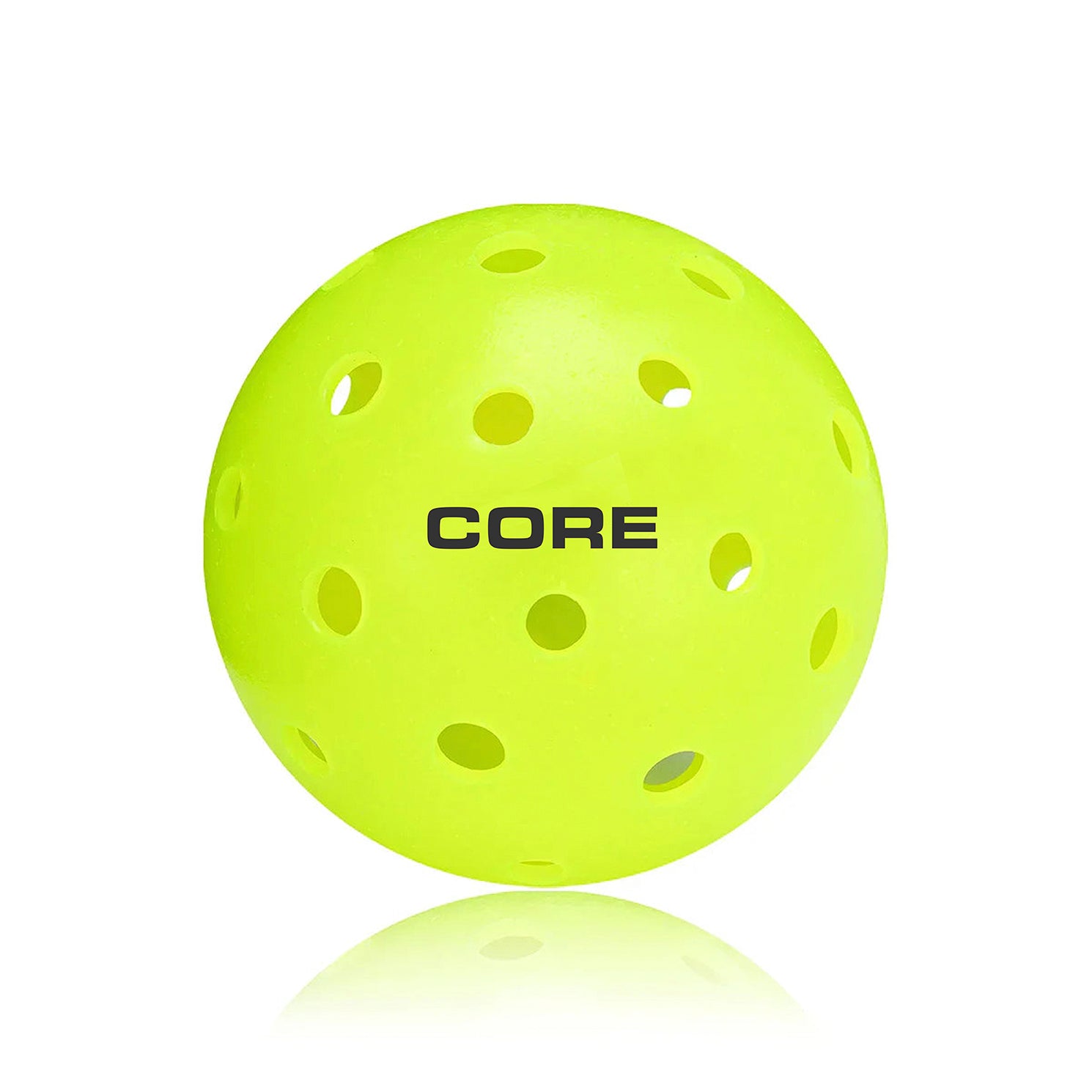Prohibited: Prohibited Things You Cannot Do in Pickleball
Pickleball is a fun and exciting sport that combines elements of tennis, badminton, and ping-pong. It has gained immense popularity in recent years, attracting players of all ages and skill levels. As with any sport, there are rules and regulations that need to be followed to ensure fair play and maintain the integrity of the game. In this article, we will explore the prohibited things you cannot do in pickleball.
1. Foot Faults
Proper footwork is crucial in pickleball, as it helps maintain balance and execute shots effectively. One of the most common violations in pickleball is a foot fault, which occurs when a player steps on or over the baseline before making contact with the ball during a serve. This action is strictly prohibited and results in a fault. To avoid foot faults, players must ensure that both feet remain behind the baseline until they make contact with the ball.
Foot faults not only give the serving player an unfair advantage but also disrupt the flow of the game. By enforcing this rule, pickleball maintains a level playing field, allowing players to rely on their skills rather than on technicalities. So, next time you step onto the pickleball court, remember to keep both feet behind the baseline to avoid any foot fault violations.
2. Non-Volley Zone Violation
The non-volley zone, also known as the kitchen, plays a critical role in pickleball strategy. It is an area near the net where players are not allowed to hit the ball out of the air unless it bounces first. Violating this rule, known as a non-volley zone violation, occurs when a player hits the ball while standing inside the kitchen.
By prohibiting volleys close to the net, the non-volley zone rule ensures fair play and maintains a balanced offense and defense. It prevents players from gaining an unfair advantage by executing aggressive volleys from a close range. The non-volley zone encourages players to rely on strategic shot placement and well-timed volleys, enhancing the overall gameplay experience.
Remember, when you find yourself inside the non-volley zone, let the ball bounce before attempting a shot. By adhering to this rule, you contribute to the fairness and integrity of the game, creating an enjoyable experience for all players involved.
3. Double Bounces
Pickleball follows a fundamental rule that each team must allow the ball to bounce once on each side before hitting it back. A double bounce occurs when a player hits the ball before it has bounced twice on their side or the opponent's side. This action is strictly prohibited as it disrupts the flow of the game and gives an unfair advantage to the hitting team.
The double bounce rule ensures that both teams have equal opportunities to return the ball and engage in a rally. By allowing the ball to bounce, players have more time to react and strategize their shots. It promotes longer rallies and showcases the skill and agility of players.
To avoid double bounces, remember to wait for the ball to bounce once on your side or the opponent's side before returning it. By adhering to this rule, you contribute to the fair and balanced nature of pickleball, enhancing the overall gameplay experience.
4. Ball Out of Bounds
Keeping the ball within the boundaries of the court is crucial in pickleball. Hitting the ball outside of the designated boundaries results in an out-of-bounds violation. The ball is considered out of bounds if it lands outside the sidelines or beyond the baseline.
Maintaining the ball within the boundaries ensures fair play and maintains the flow of the game. By enforcing this rule, pickleball prevents players from gaining an unfair advantage by hitting the ball outside the designated area. It encourages players to aim their shots accurately, promoting strategic gameplay and skill development.
To avoid out-of-bounds violations, players must focus on shot placement and control. By directing the ball within the designated boundaries, you contribute to the fairness and integrity of the game, creating an enjoyable experience for all participants.
5. Serving Out of Turn
Serving is a crucial part of pickleball, and each team takes turns serving. Serving out of turn, intentionally or unintentionally, is strictly prohibited. This violation disrupts the order of play and gives an unfair advantage to the serving team.
To maintain a fair and balanced gameplay experience, players must adhere to the correct serving rotation and wait for their turn to serve. By following the serving order, pickleball ensures that each team has an equal opportunity to serve and showcase their skills.
Serving out of turn can lead to confusion and disputes among players. It is important to communicate effectively with your teammates and opponents to avoid any misunderstandings. By respecting the serving rotation, you contribute to the fairness and integrity of the game, fostering a positive playing environment.
6. Time Violations
To maintain a smooth and efficient game, players must adhere to time limits between points. Taking excessive time between points can disrupt the flow of the game and delay the match. Time violations occur when a player exceeds the allowed time limit between points.
Respecting time limits is essential to ensure fair play and a consistent pace throughout the game. By adhering to time regulations, players contribute to a seamless gameplay experience, allowing for better engagement and enjoyment.
To avoid time violations, players should be mindful of the time between points and make an effort to keep the game moving. By being prompt and efficient, you demonstrate respect for the game, your opponents, and the overall playing experience.
7. Deliberate Distraction
Pickleball requires focus and concentration. Deliberately distracting an opponent is strictly prohibited. Actions such as making excessive noise, intentionally obstructing the opponent's view, or trying to distract them in any way are considered violations.
Maintaining fair play and sportsmanship is essential in pickleball. By avoiding deliberate distractions, players can ensure a level playing field where skill and strategy take precedence. It fosters an atmosphere of respect and enhances the overall enjoyment of the game.
To uphold the spirit of fair play, players should focus on their own performance and refrain from engaging in any actions that may disrupt their opponents. By promoting a distraction-free environment, you contribute to the integrity and sportsmanship of pickleball.
8. Unsportsmanlike Conduct
Sportsmanship is a vital aspect of any sport, including pickleball. Unsportsmanlike conduct, such as verbal abuse, excessive arguing, or insulting opponents, is strictly prohibited. Players must maintain respect for their opponents, the game, and the officials at all times.
Engaging in unsportsmanlike conduct not only tarnishes one's own reputation but also diminishes the overall experience for all participants. It can lead to penalties, disqualification, or loss of points.
Pickleball thrives on a culture of respect, fairness, and healthy competition. By embodying good sportsmanship, players create an enjoyable and inclusive environment for everyone involved. Treat your opponents with respect, play with integrity, and demonstrate good sportsmanship at all times.
Conclusion
Pickleball is a game that promotes fair play, sportsmanship, and healthy competition. Understanding and following the rules and regulations is essential to enjoy the game to its fullest. In this article, we have explored the prohibited things you cannot do in pickleball, including foot faults, non-volley zone violations, double bounces, hitting the ball out of bounds, serving out of turn, time violations, deliberate distractions, and unsportsmanlike conduct.
By adhering to these rules, players contribute to a level playing field for all participants and maintain the integrity of the game. So, grab your paddle, follow the rules, and have fun playing pickleball!
FAQ
1. What is a foot fault in pickleball?
A foot fault in pickleball occurs when a player steps on or over the baseline before making contact with the ball during a serve. This action is strictly prohibited and results in a fault.
2. What is a non-volley zone violation in pickleball?
A non-volley zone violation in pickleball occurs when a player hits the ball while standing inside the kitchen, which is an area near the net where players are not allowed to hit the ball out of the air unless it bounces first.
3. What is a double bounce in pickleball?
A double bounce in pickleball occurs when a player hits the ball before it has bounced twice on their side or the opponent's side. This action is strictly prohibited as it disrupts the flow of the game and gives an unfair advantage to the hitting team.
4. What happens if the ball goes out of bounds in pickleball?
If the ball lands outside the sidelines or beyond the baseline, it is considered out of bounds in pickleball. Hitting the ball outside of the designated boundaries results in an out-of-bounds violation.





